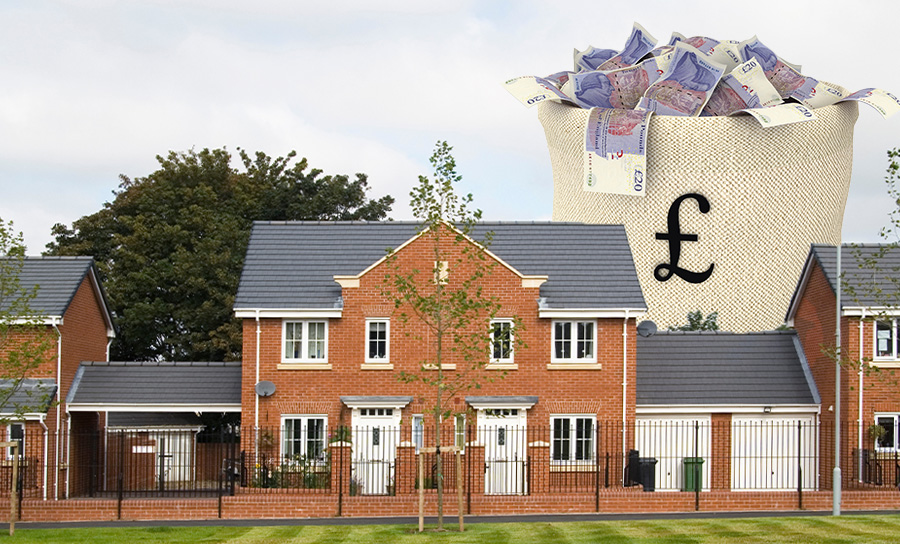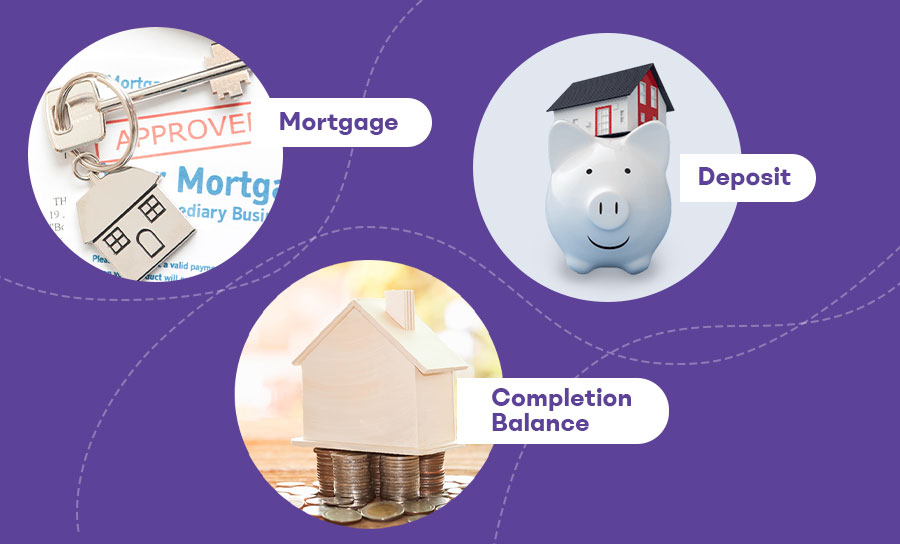
Are you ok with optional cookies ?
They let us give you a better experience, improve our products, and keep our costs down. We won't turn them on until you accept. Learn more in our cookie policy.

In the UK, the price of buying a home can vary greatly based on a number of variables, including location, property type, size, condition, and market circumstances. The average price of a home in the UK, in September 2021, was about £264,405. It's crucial to keep in mind that costs can rise dramatically in some areas, particularly in London and other big cities.
Average UK home prices rose 6.3% annually in January 2023, which was significantly less than the 9.3% growth recorded in December 2022. The average property price in the UK increased by £17,000 from the prior year to £290,000.
England had the highest average house price across the regions at £310,000, representing a 6.9% increase. Wales came in second with an average price of £217,000, an increase of 5.8%. Scotland only experienced a 1.0% gain, with an average price of £185,000. The average price in Northern Ireland increased significantly by 10.2% to £175,000 overall.
The North East of England showed the biggest yearly percentage rise of 10.0%, while London showed the lowest increase at 3.2% when evaluating individual regions within England.
Purchasing a property in UK? You must be aware of several costs to include in your budget.
The following expenses are directly related to purchasing a home in the UK that you must take into consideration and manage in advance.
Survey and Valuation Fees are incurred before making a buying decision. Buyers may want to survey several properties which they have shortlisted before buying one of them. Hence the cost of this will vary from person to person.
To evaluate the property's condition and spot any potential problems, a survey is advised especially if the property is under auction or hasn’t been lived in for very long. The type and level of detail needed in a survey determines its price. The survey fees can range from £500 to several thousand pounds based on the size.
To determine a property's value and eligibility for a loan, a mortgage lender shall request a valuation of the subject property. Every lender has a list of empaneled valuers – buyers will mostly come across panels such as VAS who have thousands of local RICS valuers on their roster. In the UK, lenders need the buyer to pay for the valuation. Valuation fee can range from £100 to several thousand pounds based on the size of the property.

Buyers are typically asked to put down a deposit, which is a portion of the property's value. The required minimum deposit is generally between 5% and 10% of the property's cost; however, bigger deposits can qualify you for better mortgage rates.
A lot of buyers use a mortgage to pay for their real estate purchases. Interest rates, the length of the loan, and the loan amount are just a few of the variables that affect mortgage costs.
The UK government levies Stamp Duty Land Tax (SDLT) on real estate transactions. Depending on the purchase price and whether you are a first-time buyer or buying a second property, the rate varies. SDLT is slab based and is lower for first time buyers buying a residence to live in.
Completion fee is charged by lenders to cover their administration costs. Typically, the completion fee ranges from 2 to 5% of the loan amount. Lenders usually pay a referral fee to mortgage advisers from their completion fees. A mortgage advisor charges a referral fee for their services. Depending on the advisor and the complexity of your mortgage requirements, these fees may change.
Lenders would also deduct a small fee for bank transfer – this can range from £25-£50.
Charges for a solicitor's or a conveyancer's professional services are included in legal costs. The checks and documentation associated with the property purchased are done by these legal professionals. They usually provide services like property searches, title checks, stamp duty estimations, and Land Registry registration of real estate. If you are buying via a SPV, you will also incur accountant’s costs and costs relating to setting up of the company.
Some financing solutions like Novyy have their legal fees inbuilt into the completion fees.
In the UK, purchasing a home entails a number of expenditures in addition to the purchase price. It's crucial to plan your spending carefully and take into account all the associated costs, including the deposit, legal fees, survey fees, and stamp duty. Your budget should also account for ongoing costs such as maintenance fees, electricity bills, council tax, and insurance.
Want to invest in UK real estate but avoid having to deal with a variety of costs and complications? Look nowhere else! Novyy is you one stop solution. You can invest with Novyy without having to worry about anything because they handle all the fees, from maintenance and bills to legal fees. Let Novyy handle everything, leaving you free to concentrate on expanding your real estate portfolio. Discover the ease and convenience of investing with Novyy today.